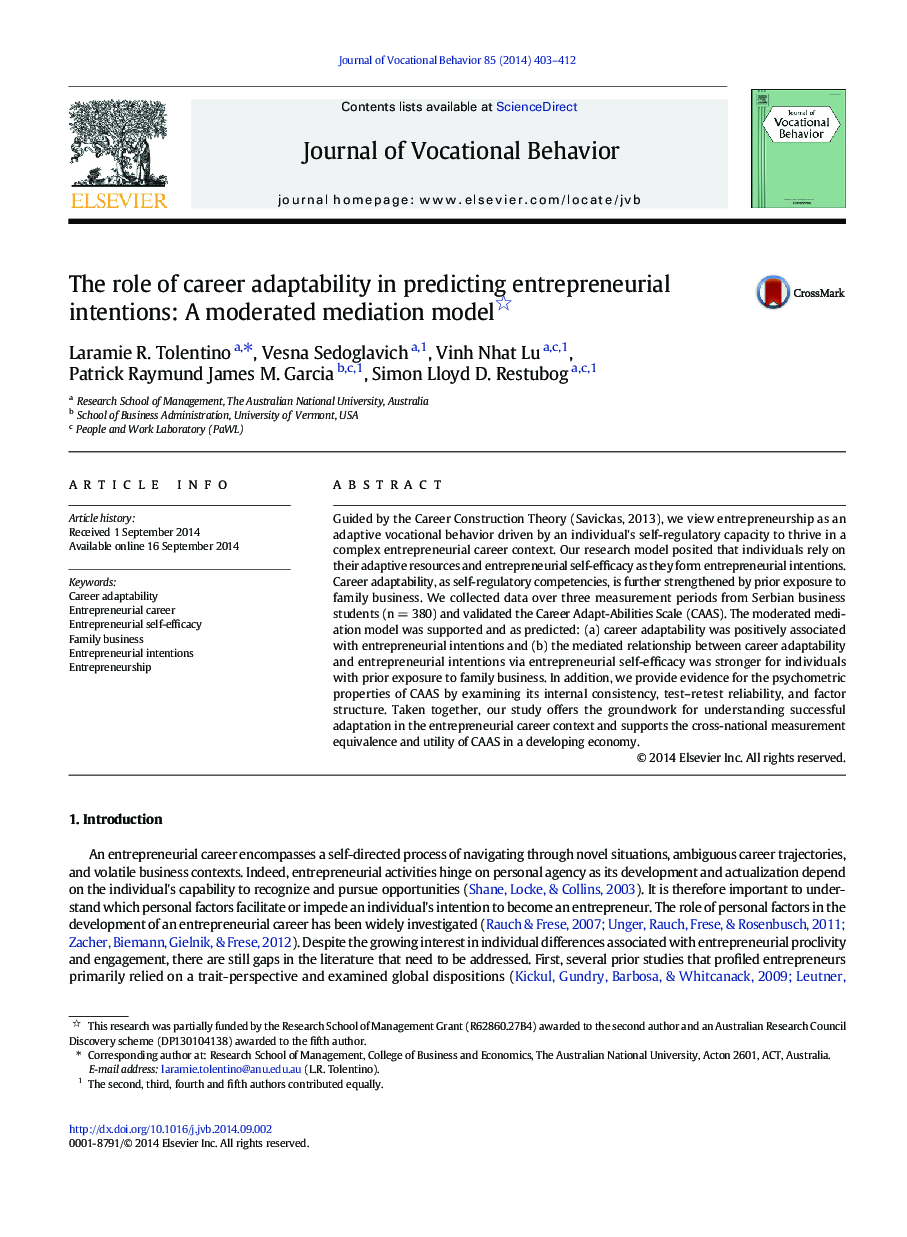| Article ID | Journal | Published Year | Pages | File Type |
|---|---|---|---|---|
| 886853 | Journal of Vocational Behavior | 2014 | 10 Pages |
•Career adaptability associated positively with entrepreneurial intentions.•Self-efficacy mediated the relation between adaptability and intentions.•Exposure to family business strengthened the mediated relation.•Test–retest reliability and construct validity of CAAS was established in Serbia.
Guided by the Career Construction Theory (Savickas, 2013), we view entrepreneurship as an adaptive vocational behavior driven by an individual's self-regulatory capacity to thrive in a complex entrepreneurial career context. Our research model posited that individuals rely on their adaptive resources and entrepreneurial self-efficacy as they form entrepreneurial intentions. Career adaptability, as self-regulatory competencies, is further strengthened by prior exposure to family business. We collected data over three measurement periods from Serbian business students (n = 380) and validated the Career Adapt-Abilities Scale (CAAS). The moderated mediation model was supported and as predicted: (a) career adaptability was positively associated with entrepreneurial intentions and (b) the mediated relationship between career adaptability and entrepreneurial intentions via entrepreneurial self-efficacy was stronger for individuals with prior exposure to family business. In addition, we provide evidence for the psychometric properties of CAAS by examining its internal consistency, test–retest reliability, and factor structure. Taken together, our study offers the groundwork for understanding successful adaptation in the entrepreneurial career context and supports the cross-national measurement equivalence and utility of CAAS in a developing economy.
